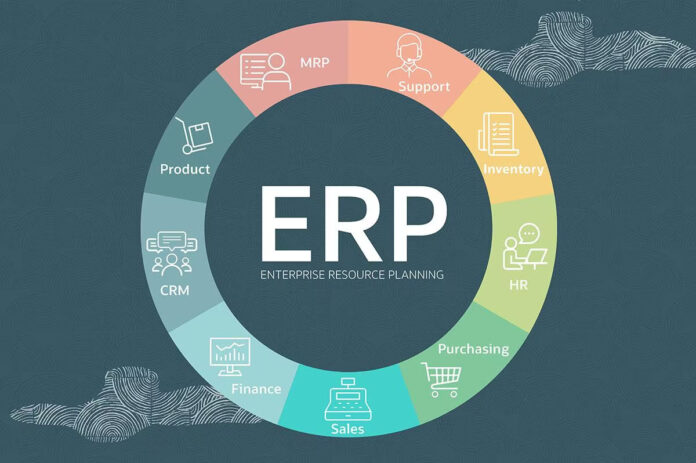The process of ERP implementation involves many people either directly or indirectly. We will need financial as well as human resources to count on to ensure the success of the project.
Selection Of The Internal Team In Charge Of The ERP Implementation
Properly selecting the profile and role of the personnel that makes up the ERP(Enterprise Resource Planning) implementation team is crucial for a successful implementation. Therefore, we give you some tips to achieve the correct structure in your team:
- Select the right people according to their skills and knowledge. It is essential that you make sure that the responsibilities assigned to each of the team members are in accordance with their skills, knowledge and area of expertise. Avoid giving the position to a person solely for organization chart or title issues and avoid, as far as possible, changes in the structure so as not to lose traceability.
- It grants autonomy and decision-making power to those in charge of the project. By empowering them you will help them take on the challenge more formally and know that the responsibility is theirs. Make sure they have clear objectives and know the tasks they must carry out, as well as the level of authority they have.
- Take care of the level of communication. It is important that all team members know the important data, as well as changes in the project to be in tune and aligned with the objectives. Constant communication is essential, so if you do not agree with something or think it can be done in another way, do not hesitate to communicate it. It is also important to record the meetings or take minutes to know what topics have been discussed in them. Since it may be material that we need in the more advanced stages of the implementation.
When we talk about the personnel involved in a software implementation project, we define a series of roles that may differ depending on the scenario in which we find ourselves:
- Small projects: smaller projects for small or medium companies
- Large projects: where the complexity increases and the number of users grows.
Roles In A Simple ERP Implementation
In a simple project, we usually don’t need many users involved on the client side. It is possible that our client is a small SME where we can deal directly with the IT manager or the manager, making communication and decision-making easier.
The roles that we can find in a simple ERP implementation just like (Dynamics 365 implementation ERP) project are the following:
- Business Advisor: the business advisor is in charge of dealing with clients, making the sale and being there for the client, verifying that expectations and satisfaction are met, as well as that the project follows its course correctly.
- Project leader (project manager): responsible for the implementation project of the implementation part. The project manager may also require help from experts in other areas or programmers in case of carrying out custom developments. It is important that the person has leadership skills. He should have a comprehensive vision of the project as a whole. In addition, the project manager must monitor the progress and keep the documentation of each phase of the project. To ensure that everything is going in order and according to planning.
And on the client side:
- Single Point of Contact (SPOC): it is the point of contact that we will have with the client. It must be a person and not a change of time. In which the implementation is developed in order to centralize communications and knowledge, in addition to decision-making. It is also usually the person in charge of training the rest of the employees or end users.
- Sponsor: in some cases, on the client’s side, there will also be a sponsor. Who will be the person who decided to embark on the project and who is in contact and coordination with the single point of contact? He is in charge of ensuring that the vision of the company is represented in the priorities of the project.
Roles In A Complex ERP Implementation
In a complex project, the parts remain the same, but the flow may vary. Normally for larger projects a layer is added where the steering committee would be included, which consists of:
- The project manager of the integrating part is in charge of coordinating the project from the implementing part together with the operational team. This user is also in contact with the customer’s SPOC
- Single point of contact, which in this case is not directly involved in the operational part of the implementation. He is in charge of making sure that milestones are met and that planning is respected.
- Sponsors are responsible for ensuring that the vision of the project as a whole along with the priorities are maintained.
The operational part (delivery) is directed by the project leader who works together with the developer and other experts. The project leader is the only one who contacts the users on behalf of the client (key users) involved in the project. Thus reducing complexity to a minimum.
The key users can be a multitude of users from heads of each department to project managers, as well as developers who work for our client. In addition, these key users must test the application to ensure the proper functioning of the configuration made. It gives the go-ahead to the implementing party.
The test is essential in an ERP implementation project, if it is not tested enough, the ERP could be having an unexpected behavior that would have a direct impact on the operation, such as reducing productivity or even directly affecting the finances of the organization.
This team’s operational part would also be in charge of carrying out the training for the rest of the end users.
Training And Education Are A Key Element In An Implementation
ERP implementers are in charge of teaching other users the necessary knowledge to use the system. 70% of the problems that we can find during implementation are due to bad or no training. For this reason, training in an implementation project is essential for users to understand and execute the program correctly. The ERP implementer can train one or more people from the company in which the implementation is taking place. They will be in charge of training in a broader way and communicating this knowledge to other users.
Support And Maintenance
The ERP provider, in general, is in charge of carrying out the installation. Although the client’s technical team (if it has one) may also be involved in this process. In addition, the integrating party may also be in charge of constantly monitoring and improving security systems.
They ensure that only designated personnel can access your company’s data. Security measures must be clear, especially if private information is handled. Therefore, before selecting an implementing company, these aspects must be taken into account.
External ERP consultants assist internal staff in managing the ERP software and system. In most cases, companies hire an ERP consultant to perform comprehensive system maintenance. As well as performance support, technical assistance, repairs, or system updates.





